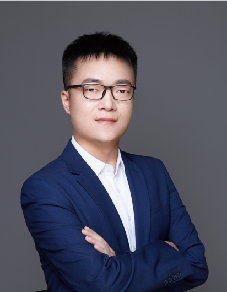刘威
副研究员,硕士生导师
Mail: weiliu1991@ccnu.edu.cn
教育与工作经历:
2021年-至今:必赢76net线路任教
2020年-2021年:奈梅亨大学(荷兰) 唐德斯脑科学中心(Donders Institute),博士后
2016年-2020年:奈梅亨大学(荷兰) 唐德斯脑科学中心(Donders Institute)(获医学科学博士)
联系方式:
通讯地址:湖北省武汉市珞喻路152号必赢76net线路南湖校区南湖综合楼8055
主讲课程:
《生理心理学》,《认知心理学》,《心理学基础》,《创造性心理学》,《心理学实验编程》
指导本科生创新实验项目:
2021年大学生创新实验支持项目/助推计划支持项目(共获9000元经费资助)。项目名称:“基于事件分割理论的网课学习实时监控和材料优化研究”(负责人,陈政玥2020级),项目指导教师。
学术兼职:
1、受邀担任SCI杂志Frontiers in Behavioral Neuroscience客座编辑 (JCR Q1)
2、受邀担任十余种SCI/SSCI杂志审稿人(如:Biological Psychiatry,The Journal of Neuroscience,Cerebral Cortex, NeuroImage,Neuropsychologia,Psychonomic Bulletin & Review……)
人才计划项目:
1、湖北省高层次(青年)人才引进计划“情绪与记忆交互作用的脑机制”(支持周期:2023-2028)
主持科研项目:
1、国家自然科学基金“应激下记忆快速巩固的神经重放机制研究”(研究周期:2024-2027)
2、教育部人文社科项目“节奏促进儿童青少年古诗记忆的发展认知神经机制”(研究周期:2023-2025)
3、湖北省自然科学基金项目“短视频经验扰乱青少年连续记忆编码的教育神经科学研究”(研究周期:2023-2025)
4、认知神经科学与学习国家重点实验室开放课题“提取练习保护应激压力下记忆提取的发展认知神经科学研究”(研究周期:2022-2024)
5、教育部重点实验室开放课题“青少年数学焦虑的脑科学与干预研究”(研究周期:2023-2025)
6、华中师范大学“高层次人才引进”科研启动项目“网络短视频经验影响连续情景记忆编码的认知神经机制”(研究周期:2021-2024)
受邀讲座:
1. “How event segmentation facilitates memory formation?” 中国心理学会普通心理和实验心理专业委员会2022学术年会 青年论坛,2022年11月,浙江金华
2. “情绪记忆作为情绪神经科学和心理健康研究的桥梁” 中国心理学会情绪与健康专业委员会2022学术年会 2022年11月,福建厦门
3. “情绪记忆的形成和控制”上海外国语大学脑与认知应用重点实验室 2021年
4. 博士及博士后期间应邀香港大学,大数据时代的医学研究研讨会,欧洲华人脑科学与心理学大会,唐德斯脑科学年会作特邀报告
[1] WEI LIU (Corresponding Author), & Guo, J.(课题组成员) (2023). The dialogue between Ebbinghaus and Bach: studying human memory with artworks. https://doi.org/10.31234/osf.io/4y5aw
[2] Sirui, Wang (课题组成员), ZhangXinyi (课题组成员), and WEI LIU (Corresponding Author). 2023. Exploring Resilience to Trauma Through Unsupervised Clustering Approach and Network Analysis. http://doi:10.31234/osf.io/emnk3.
[3] WEI LIU, Kohn, N, & Fernandez, G. (2022). Dynamic transitions between neural states are associated with flexible task-switching during a memory task. Journal of Cognitive Neuroscience.
[4] WEI LIU, Yingjie Shi, James N Cousins, Kohn, N, & Fernandez, G. (2022). Hippocampal-Medial Prefrontal Event Segmentation and Integration Contribute to Episodic Memory Formation. Cerebral Cortex.
[5] WEI LIU, Kohn, N, & Fernandez, G. (2020). Probing the neural dynamics of mnemonic representations after the initial consolidation. NeuroImage.
[6] WEI LIU, Peeters, N., Fernandez, G., & Kohn, N. (2020). Common neural and transcriptional correlates of inhibitory control across emotion, memory, and response inhibition. Soc. Cogn. Affect. Neurosci.
[7] WEI LIU., Kohn, N., & Fernández, G. (2019). Intersubject similarity of personality is associated with intersubject similarity of brain connectivity patterns. NeuroImage, 186, 56-69.
[8] WEI LIU., Wei, D., Chen, Q., Yang, W., Meng, J., Wu, G., ... & Qiu, J. (2017). Longitudinal test-retest neuroimaging data from healthy young adults in southwest China. Scientific data, 4, 170017.
[9] Wei Cheng *, Edmund T Rolls *, Jiang Qiu *, WEI, LIU *, Yanqing Tang *, Chu-Chung Huang *, XinFa Wang *., ... & Jianfeng Feng. (2016). Medial reward and lateral non-reward orbitofrontal cortex circuits change in opposite directions in depression. Brain, 139(12), 3296-3309. (*These authors contributed equally to this work.)
[10] WEI, LIU., Mao, Y., Wei, D., Yang, J., Du, X., Xie, P., & Qiu, J. (2016). Structural Asymmetry of Dorsolateral Prefrontal Cortex Correlates with Depressive Symptoms: Evidence from Healthy Individuals and Patients with Major Depressive Disorder. Neuroscience Bulletin, 1-10.
[11] WEI, LIU., Liu, H., Wei, D., Sun, J., Yang, J., Meng, J., ... & Qiu, J. (2015). Abnormal degree centrality of functional hubs associated with negative coping in older Chinese adults who lost their only child. Biological psychology,112, 46-55.
